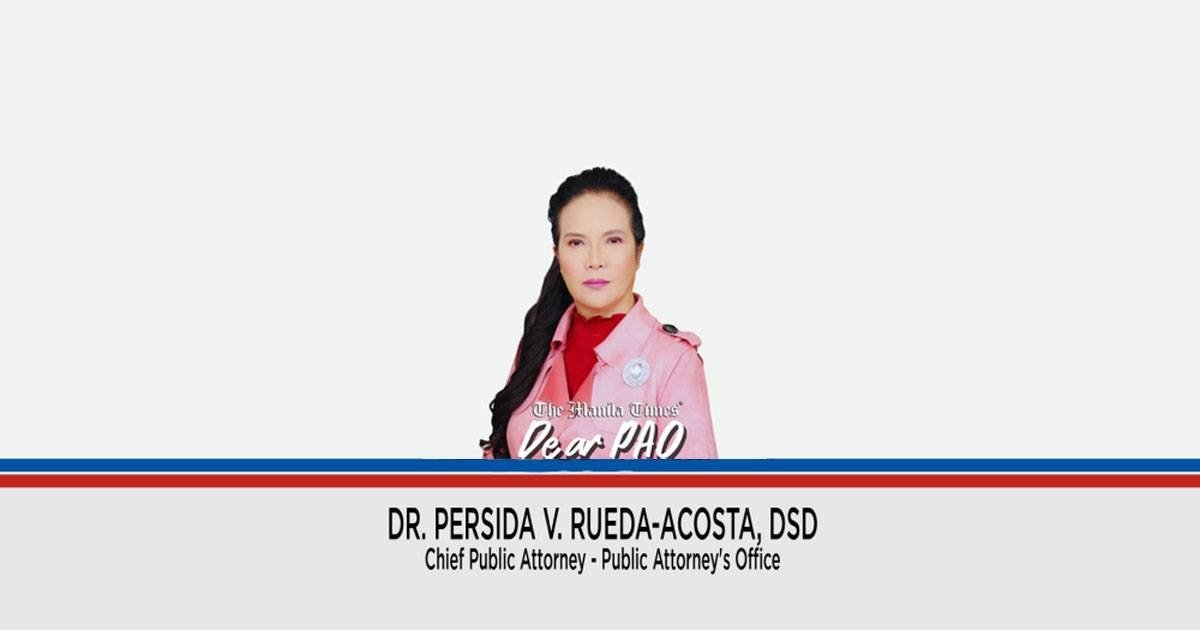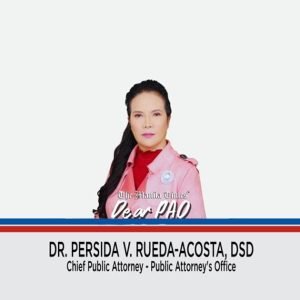
Dear PAO,
My mother had been battling cancer since 2018. My other siblings took care of her because I am currently in Manila, while they are in Bicol. I recently found out from one of my siblings that my mother executed a last will and testament wherein she indicated the following: “I am disinheriting my child, Kevin. I don’t want any of my properties to go to Kevin.” My mother died in January 2024. I do not know why my mother disinherited me, but I want to know if this statement in her last will and testament could validly disinherit me?
Kevin
Dear Kevin,
Article 915 of the New Civil Code of the Philippines provides that a compulsory heir may be deprived of his legitime if he/she was disinherited by the testator for causes enumerated by law. Compulsory heirs include legitimate children and descendants.
A person may execute a last will and testament. The law even allows the testator to disinherit an heir in his/her last will and testament as long as it is written in the will and the reason for such disinheritance was specified in the will. This is based on the provision of Article 916 of the said Code, wherein the following was stated:
“ARTICLE 916. Disinheritance can be effected only through a will wherein the legal cause therefor shall be specified.”
It is clear from the above-mentioned provision that for disinheritance to be valid and effective, the fact of disinheriting the compulsory heir must be expressly provided in the will. Moreover, the reason for such disinheritance must only be based on the legal grounds provided by law and such cause must be expressly specified in the said will as well.
In other words, a testator cannot disinherit a compulsory heir just because he/she wants to. The law only allows the disinheritance if the cause thereof is one of the legal causes provided by law. To validly disinherit a child, the following are the grounds provided by law:
“ARTICLE 919. The following shall be sufficient causes for the disinheritance of children and descendants, legitimate as well as illegitimate:
“1. When a child or descendant has been found guilty of an attempt against the life of the testator, his or her spouse, descendants, or descendants;
“2. When a child or descendant has accused the testator of a crime for which the law prescribes imprisonment for six years or more, if the accusation has been found groundless;
“3. When a child or descendant has been convicted of adultery or concubinage with the spouse of the testator;
“4. When a child or descendant by fraud, violence, intimidation, or undue influence causes the testator to make a will or to change one already made;
“5. A refusal without justifiable cause to support the parent or ascendant who disinherits such child or descendant;
“6. Maltreatment of the testator by word or deed, by the child or descendant;
“7. When a child or descendant leads a dishonorable or disgraceful life; Conviction of a crime which carries with it the penalty of civil interdiction.”
In your case, the statement found in your mother’s last will and testament may not validly disinherit you as her child. Although the fact of the disinheritance was expressly written in her will, there was no ground specified as to the reason of disinheritance. Thus, we may not know whether or not her ground for disinheritance was expressly provided by law.
We hope that we were able to answer your queries. This advice is based solely on the facts you have narrated and our application of the same. Our opinion may vary when other facts are changed or elaborated.
Editor’s note: Dear PAO is a daily column of the Public Attorney’s Office. Questions for Chief Acosta may be sent to [email protected]






